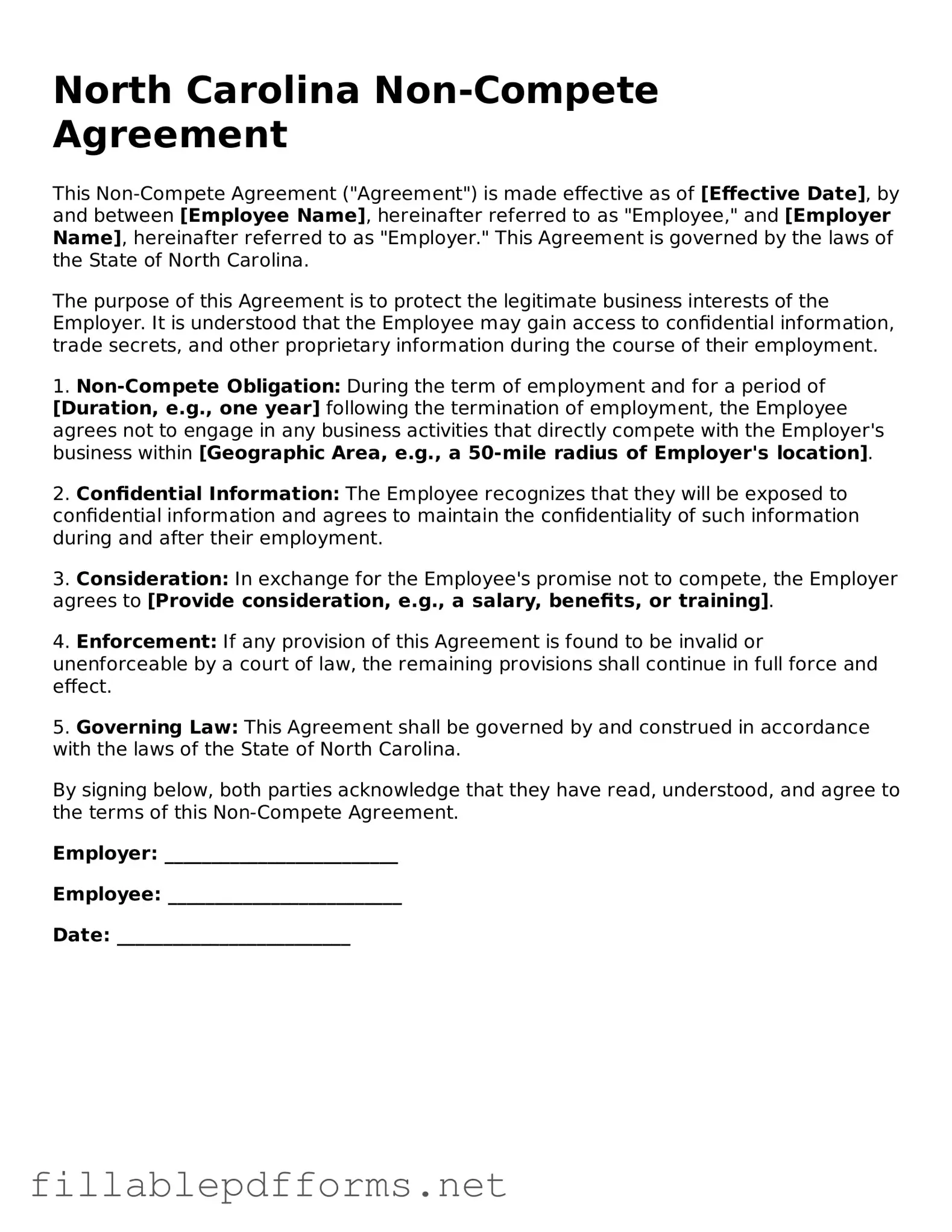Attorney-Verified Non-compete Agreement Form for North Carolina State
A North Carolina Non-compete Agreement form is a legal document that outlines restrictions on an employee's ability to work for competitors after leaving a job. This agreement aims to protect a company's confidential information and trade secrets. Understanding its components and implications is essential for both employers and employees in navigating their professional relationships.
Launch Editor Here

Attorney-Verified Non-compete Agreement Form for North Carolina State
Launch Editor Here

Launch Editor Here
or
▼ Non-compete Agreement PDF
Almost there — finish the form
Complete Non-compete Agreement online fast — no printing, no scanning.